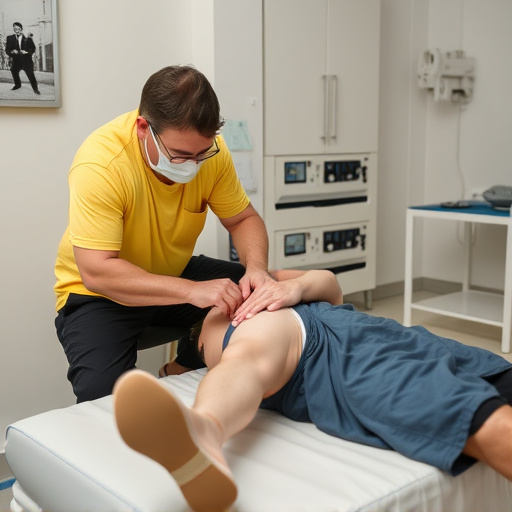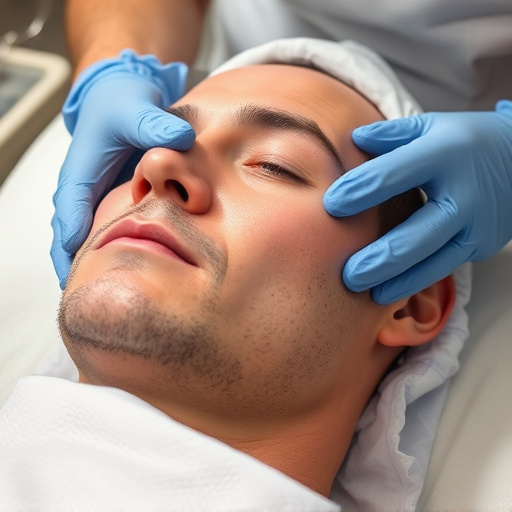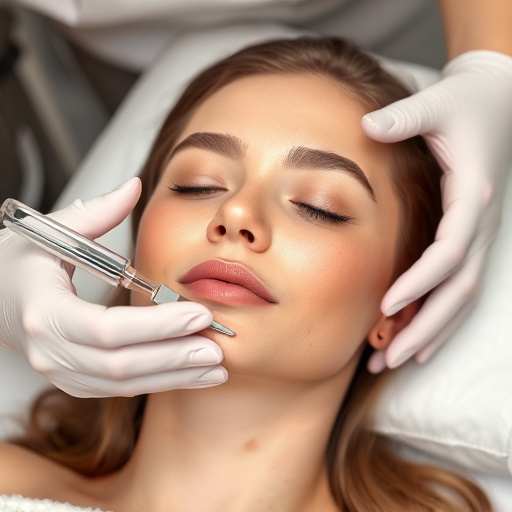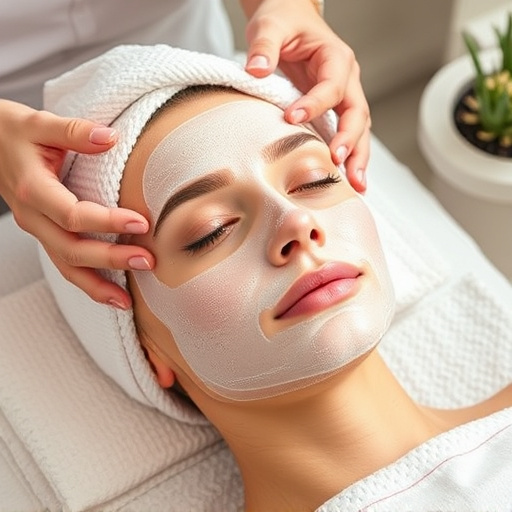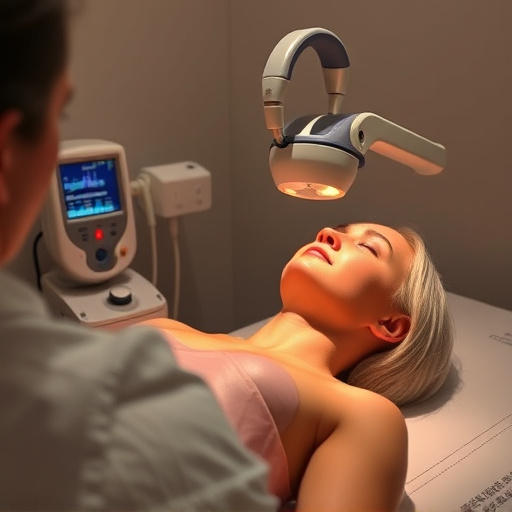Treating melasma during pregnancy and postpartum requires caution due to fetal risks. Skincare professionals recommend gentle topical solutions and non-invasive methods like sunscreen and rigorous skincare routines. Medical spas offer safe procedures like chemical peels and microdermabrasion for pregnant and breastfeeding mothers, improving skin texture with products containing vitamin C, hyaluronic acid, or low-concentration retinoids. Postpartum, microneedling therapy and personalized hydration/sun protection routines are recommended under expert guidance, emphasizing individualized advice for secure melasma management.
Melasma, often referred to as ‘pregnancy mask,’ is a common skin condition that can leave many new moms seeking safe treatment options during pregnancy or while breastfeeding. This comprehensive guide explores the risks and considerations surrounding melasma treatment during these critical periods. We delve into the potential hazards of various treatments, offering insights for expectant mothers and new dads. Additionally, we provide expert advice on navigating postpartum melasma therapies, ensuring informed decisions for a smooth recovery.
- Melasma Treatment During Pregnancy: Risks and Considerations
- Breastfeeding and Melasma: Safe Options for New Moms
- Expert Advice: Navigating Melasma Treatments Postpartum
Melasma Treatment During Pregnancy: Risks and Considerations

During pregnancy, melasma treatment becomes a complex topic for many women dealing with this skin condition. While melasma itself is generally considered benign, any potential risks associated with treatments must be carefully evaluated. Many commonly used anti aging treatments and wrinkle reduction methods may not be suitable during pregnancy due to possible adverse effects on the developing fetus.
Skincare professionals recommend avoiding aggressive melasma treatment techniques such as intense laser therapies or chemical peels until after childbirth. Instead, they suggest focusing on gentle, topical solutions that can help manage melasma symptoms without posing risks to the baby. Prioritizing skin rejuvenation through non-invasive methods and maintaining a healthy skincare routine with sunscreen can be beneficial during this sensitive period.
Breastfeeding and Melasma: Safe Options for New Moms

For many new mothers, dealing with melasma during pregnancy or breastfeeding can be a source of concern. While melasma treatment options exist, it’s crucial to explore safe and effective choices, especially for those who are nursing. The good news is that managing melasma while breastfeeding is feasible through various gentle yet targeted approaches.
One popular and relatively safe option is professional skincare services offered by medical spas. These facilities often employ non-invasive procedures like chemical peels or microdermabrasion, which can help fade melasma without causing harm to the baby. Additionally, specialized products containing ingredients like vitamin C, hyaluronic acid, or retinoids (in low concentrations) can be recommended for daily use. These topical treatments can improve skin texture and tone while being safe for breastfeeding mothers. Incorporating these gentle yet effective medical spa services into a new mom’s skincare routine can help her regain her confidence without compromising her health or that of her baby.
Expert Advice: Navigating Melasma Treatments Postpartum

When it comes to melasma treatment postpartum, seeking expert advice is crucial. Many women are eager to address the dark patches left by melasma during pregnancy or breastfeeding, but traditional treatments may not be suitable during these sensitive periods. Thankfully, professional skincare specialists offer a range of safe and effective options tailored for new mothers.
Consulting a dermatologist or an experienced skin care specialist can provide insights into the best course of action. For instance, gentle microneedling therapy has gained popularity as a minimally invasive procedure that can stimulate collagen production without irritating the sensitive postpartum skin. Alternatively, certain professional skincare routines focusing on hydration and sun protection can help fade melasma gradually. It’s important to remember that every individual’s experience is unique, so personalized advice from a qualified expert ensures the safety and success of any chosen treatment method.
When it comes to treating melasma during pregnancy or while breastfeeding, it’s essential to prioritize safety and consult healthcare professionals. While some treatments may be suitable postpartum, options during these sensitive periods often focus on gentle, non-invasive approaches. Hydroquinone, a common melasma treatment, should be avoided due to potential risks. Instead, focusing on protection with broad-spectrum sunscreen, topical retinoids (once considered contraindicated but now deemed safe in pregnancy under expert guidance), and lifestyle adjustments can help manage melasma symptoms. Always seek personalized advice from your dermatologist or obstetrician for the best course of action tailored to your unique needs.

